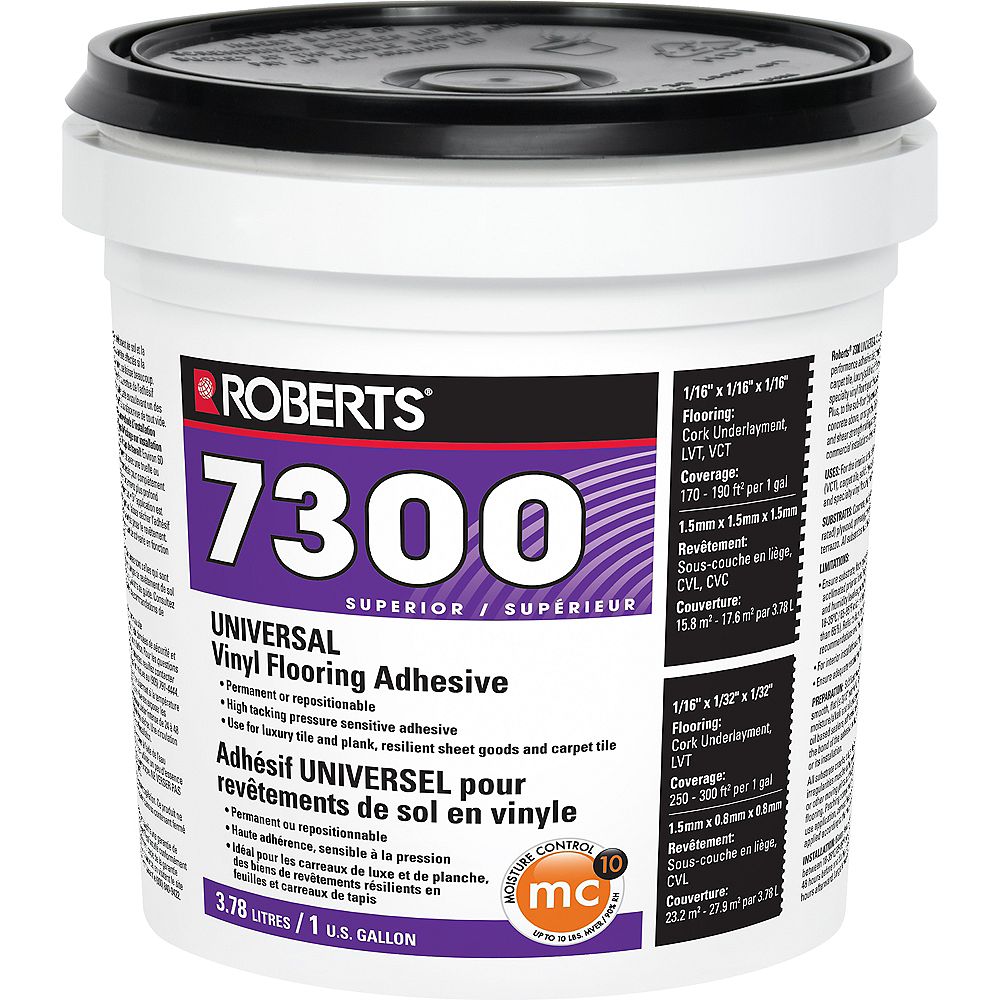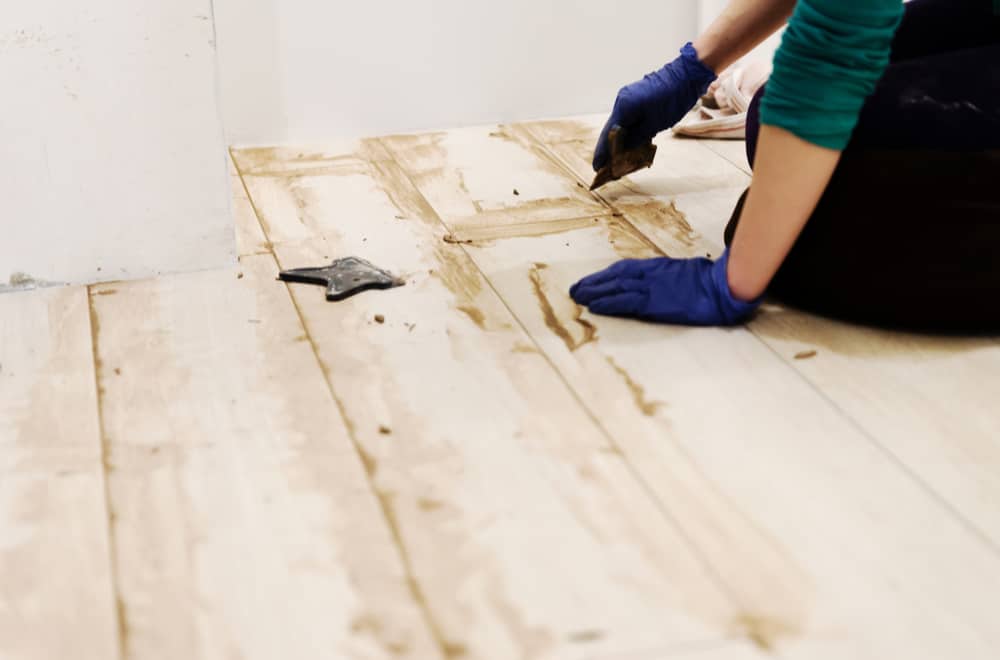Remember that time you were planning a home renovation, and you were so excited to finally install new floors? You were certain that vinyl flooring was the perfect choice for your lifestyle. It’s durable, water-resistant, and relatively easy to maintain. But then you stumbled upon a new question: do you need glue for vinyl flooring? Suddenly, the excitement of the project was replaced by a wave of confusion about this seemingly simple, yet important detail. Well, you’re not alone. This is a common question for homeowners embarking on a flooring upgrade.

Image: kirstinjunese02891.blogspot.com
So, do you need glue for vinyl flooring? The answer, much like many DIY projects, is a bit more complex than a simple yes or no. It depends on the specific type of vinyl flooring you’re installing. In this comprehensive guide, we’re going to dive deep into the world of vinyl flooring, explore the different types, and help you understand when glue is necessary and when it’s not. By the end of this article, you’ll be armed with the knowledge needed to make an informed decision for your flooring project.
Understanding Vinyl Flooring: Glued vs. Click-Lock
There are two main types of vinyl flooring you’ll encounter: glued-down vinyl and click-lock vinyl. The difference lies in the installation method. As the name suggests, glued-down vinyl requires adhesive, typically a strong, moisture-resistant construction adhesive. It’s applied to the subfloor and the flooring tiles are then pressed into place. This method creates a solid, permanent bond between the flooring and the subfloor.
On the other hand, click-lock vinyl flooring is designed for a more straightforward installation process. These tiles or planks have interlocking edges that snap together, much like putting together a large puzzle. This type of flooring doesn’t require adhesive for installation, but it does rely on a level subfloor for the interlocking mechanism to function properly. The clicking sound you hear as you install the flooring is a testament to the secure connection being created.
When Do You Need Glue for Vinyl Flooring?
So, now that you understand the different types of vinyl flooring, let’s delve into when glue is necessary. Glued-down vinyl flooring, by its very nature, requires adhesive. This is because the flooring tiles are designed to be permanently attached to the subfloor. This gives you a solid, robust floor that’s less likely to experience movement or separation over time.
Click-lock vinyl flooring, on the other hand, is designed to be float a little above the subfloor. This means you’ll install panels onto a level subfloor, but they’re not attached to it. This type of flooring can be installed over existing subflooring like concrete, wood, or tile. The interlocking mechanism makes it easier to install and remove, but as mentioned before, it does require a very level surface to ensure the panels fit together tightly. There are also underlayment options for click-lock vinyl flooring that are designed to add a soft cushion and can help to even out minor imperfections in the subfloor. These underlayments can also increase the sound-dampening properties of the flooring, making it a more comfortable and quieter option.
Pros and Cons of Glued and Click-Lock Vinyl Floors
When deciding which type of vinyl flooring is best for you, consider the pros and cons of each. It’s also important to factor in your budget, skills, and the type of space you’re working with.

Image: www.whatisvinyl.com
Glued-Down Vinyl Flooring:
Pros:
- Durable: The permanent bond between the flooring and subfloor makes this a highly durable option, ideal for high-traffic areas.
- Water-resistant: When properly installed, glued-down vinyl flooring provides an excellent barrier against water damage, making it suitable for kitchens, bathrooms, and basements.
- Seamless: Because the flooring is tightly attached to the subfloor, there are no gaps or seams, creating a unified look and a less prone surface for dirt and grime to accumulate.
Cons:
- Permanent Installation: Since glued-down vinyl flooring is permanently attached to the subfloor, it’s not ideal for spaces that might require future floor remodels or repairs.
- Installation Difficulty: While not overly complex, installing glued-down vinyl flooring does require some experience and careful application of adhesive to ensure a uniform and flat finish.
Click-Lock Vinyl Flooring:
Pros:
- Easy Installation: Click-lock vinyl flooring is known for its user-friendly installation process. It’s relatively simple to click together the pieces, even for DIY enthusiasts.
- Re-Installation: A significant advantage of click-lock vinyl flooring is its ability to be re-installed. This means you can relocate the flooring to new homes or spaces.
- Cost-Effective: Generally, click-lock vinyl flooring is more affordable than glued-down vinyl, making it a budget-friendly flooring option.
Cons:
- Less Durable: Because the panels are not glued to the subfloor, click-lock vinyl flooring can be less durable, especially in high-traffic areas.
- Uneven Subfloors: If your subfloor isn’t completely level, the gaps can make the floor feel uneven or create a noticeable click-clack sound.
Expert Tips for Installing Vinyl Flooring
Whether you’re using glued-down or click-lock vinyl flooring, it’s essential to follow best practices to ensure a successful installation.
Here are some expert tips:
- Prepare the Subfloor: A level, clean, and dry subfloor is crucial for both glued-down and click-lock vinyl flooring. Any cracks or bumps need to be repaired prior to installation.
- Measure Twice, Cut Once: Accurate measurement and cutting are crucial for a professional-looking installation. Carefully measure the space and use a sharp utility knife or saw to cut the flooring pieces precisely.
- Seek Professional Guidance: If you’re unsure about the installation process, don’t hesitate to consult a flooring specialist for expert advice.
- Use the Right Tools: Investing in appropriate tools, such as a flooring installation kit, a tape measure, and a level, will make the installation easier and more accurate.
FAQs about Vinyl Flooring
Here are some common questions that homeowners ask about vinyl flooring:
Q: Is it hard to install vinyl flooring?
A: Click-lock vinyl flooring is relatively easy to install for DIY enthusiasts. It’s like putting together a large puzzle. However, glued-down vinyl flooring requires more experience and attention to detail.
Q: How long does vinyl flooring last?
A: Well-maintained vinyl flooring can last for decades. It’s important to choose a quality material and install it correctly to maximize its lifespan.
Q: Can you install vinyl flooring over existing tile?
A: This is tricky. While you may be able to install click-lock vinyl over existing tile, it’s not usually recommended because the subfloor must be extremely level. Glued-down vinyl flooring requires a smooth, flat surface with a good bond, so it’s generally not suitable for installation over tile.
Q: What are the best cleaning products for vinyl flooring?
A: You can generally use a mild cleaner and a damp mop to clean vinyl flooring. Avoid abrasive cleaners and overly wet mopping, as these can damage the flooring.
Do I Need Glue For Vinyl Flooring
Conclusion
So, do you need glue for vinyl flooring? The answer is it depends. When choosing your next flooring project, it’s best to consider your budget, desired aesthetic, and skill level. If you’re a DIY enthusiast with a level subfloor, click-lock vinyl flooring is a great option that offers a cost-effective and easy installation. If you are looking for a long-lasting floor that can withstand high-traffic areas, then consider a glued-down vinyl flooring option.
Are you ready to take on your next flooring project? Whether you opt for glued-down or click-lock vinyl flooring, a little research and careful planning will result in a stunning, long-lasting floor for your space.






